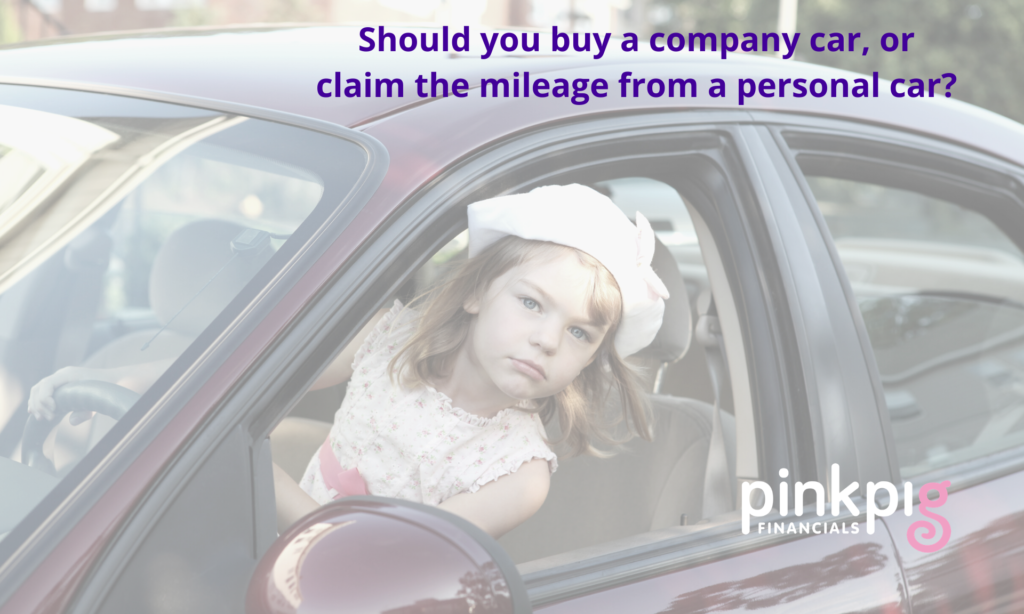Let’s start by being honest – we’re all looking for ways to save us a little bit of that nasty tax bill at the end of the year! One very effective way to do so is with cars! But the big question is; should you buy a company car, or claim the mileage from a personal car?
I’ll highlight the bullet points of each option, and then at the end, we’ll figure out what’s best for you!
Claiming the mileage from a personal car
If you use your car only occasionally for business usage, eg a local meeting with a client once or twice a week, then this is probably the option for you!
- For petrol or diesel cars, you can claim 45p per mile for the first 10,000 miles of business travel. After that, you can only have 25p per mile.
- If the car is electric, the claimable amount is dramatically reduced to 4p per mile.
(Check out our blog on mileage here to find out more on how this works)
Using a company-owned car
In this case, then be aware that it will be considered a ‘taxable benefit’ to the employee. The car is simply in place of the money that would’ve been given you to buy a car .. so it’s subject to the tax and NI that would’ve happened had the money been paid to the employee instead.
- If the company owns the car, then any and all costs associated with it will be put through the business; insurance, MOT, cleaning, fuel etc.
- An agreement will be drawn up regarding the allowance of personal use for the car. Regardless of how happy the company is for the car to be used personally, any personal use will incur extra tax under its status as a taxable benefit.
Buying a car for business use as a director
This means that you personally purchase the car, insurance, tax etc, but that it can be reimbursed by the business.
- Although costs are reimbursable to you, the company itself will not be able to take advantage of any capital allowances related to the car.
- This type of vehicle is likely used for a lot of personal use too. You’ll need to keep track of how much usage is business and how much is personal, and then divide all costs between those. Eg, the car is 50% business, and 50% personal, then 50% of the insurance, tax, fuel, MOT etc (the running costs) is reimbursable.
Which option is best for me?
So, those are the options! We generally say as a rule of thumb if the car is for the director then 9 times out of 10 the mileage route would be the most tax efficient.
However, if you’re looking at a pure electric car as a director, then the current tax breaks usually means you’ll be better off buying the vehicle through the business. Check out more on electric cars in our blog on how they’re good for your pocket as well as the environment!
Company vehicles are a good way to incentivise your employees, and often a good benefit to offer to attract high calibre employees, so if you’re looking for a vehicle for an employee rather than a director then this could be a better option depending on the circumstances.
And then of course there are commercial vehicles (usually vans and similar) which are a whole other ball game. These types of vehicles usually do not come under the same rules, meaning the company can own these and there is no benefit in kind for the director/employee. But you need to ensure they are fully classed as a commercial vehicle, as there are some grey areas with certain types of vehicles.
The last thing then to consider when you’ve made the decision on whether the company should buy the vehicle, or if it should be a personal purchase is how to buy the vehicle – the lease v purchase question. We explore this question here.
If this is something you’re looking into, then please do feel free to schedule a meeting with us to discuss where the best savings will be made.
If you’re an existing client please drop us an email, or if you’re looking at working with PPF please visit our Work With Us page to complete the quick questionnaire and schedule a discovery call.

